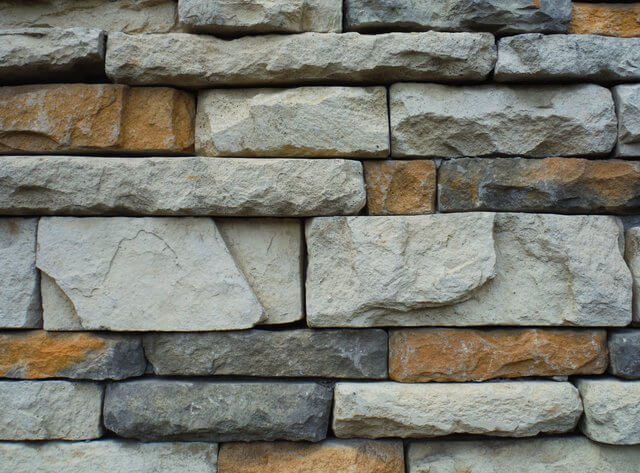Qualities of Good Building Stone
Stone is a very common building material where it is available on a large scale. The stones are mostly used for foundation work, outer walls, road construction, and dam construction.

The stonework is not as easy as brickwork, it has several drawbacks. It is necessary to check their quality first before using stones in building works. Following are some properties or characteristics or qualities of good building stones.
1. Appearance
The stones that are to be used for the work of the face should have a good appearance. They should be able to retain their uniform color and appearance for a long time.
2. Colour
Color is an indicator of good building stones. Uniform color is always desirable for good building stones. It is desirable to use light-colored stones at the face work and also for exposed positions.
3. Crushing Strength
The crushing strength of a good building stone should be higher than 100 N /mm2. The crushing strength values of some of the stones are as given here.
| Rock | Name of Stones | Crushing Strength in N/mm2 |
| 1. Sedimentary | Sand stone | 64 |
| Limestone | 54 | |
| Laterite | 1.8 to 3.1 | |
| Shale | 0.2 to 0.60 | |
| 2. Igneous | Granite | 75 to 25 |
| Basalt | 150 to 185 | |
| Diorite | 90 to 150 | |
| Trap | 330 to 380 | |
| 3. Metamorphic | Gneiss | 206 to 370 |
| Slate | 75 to 207 |
4. Dressing
The stones quarried from quarries cannot be used directly for masonry work as they are quite irregular. It needs to cut or dressed in usable sizes and shapes by using suitable tools. This process is known as the dressing of stones. So, a good building stone should be such that it can be easily carved, cut, dressed, or moulded.
The dressing of stones is an important factor from an economic point of view. If the dressing of stones is very difficult and costly, then its use in construction work should be avoided as much as possible. Otherwise, labor costs will be increased which will increase the overall cost of construction.
5. Hardness
The coefficient of hardness for the stones which are used for road construction must be more than 17. The coefficient of hardness below 14 shows a stone of poor hardness. If the coefficient of hardness lies between 17 to 14, then it is said to be medium hardness.
6. Toughness Index
A good building stone should be tough enough. To find out the toughness of a stone, an impact test is carried out. If the value of the toughness index is above 19, the toughness of the stone is said to be high, and it indicates the quality of the stone is good.
When this value lies between 13 to 19, is said to be moderately tough. If this value is less than 13, the stone is said to be poor-tough, and it indicates the quality of the stone is bad.
7. Percentage of wear
In the attrition test, if the value of wear comes to more than 3%, the stone is unsatisfactory. For a good building stone, the value of wear should not be more than 3%.
8. Specific gravity
The specific gravity can help determine the quality and durability of stones for various applications. The specific gravity of stones can vary depending on the type of stone. Here are some approximate specific gravity values for commonly used stones in construction:
- Granite: 2.63 – 2.75
- Limestone: 2.3 – 2.7
- Marble: 2.65 – 2.80
- Slate: 2.7 – 2.8
- Quartzite: 2.65 – 2.80
For good building stones, the specific gravity should not be less than 2.7. The higher specific gravity of the stones indicates greater compactness, higher durability, and less porosity. For constructing heavy structures like dams, retaining walls, etc. heavier stones should be used.
9. Seasoning of Stones
Proper seasoning of stones helps improve the quality and durability of the stone, making it suitable for various applications. The quarried stones contain moisture(quarry sap), and the presence of quarry sap in the stones helps in the process of stone dressing. After shaping the stones, they must be properly seasoned, i.e. dried(remove quarry sap), before being used in construction. In order to remove quarry sap from the stone, it should be kept in the open air for at least 6 to 18 months from the date of the quarrying.
10. Resistance to fire
When it comes to using stones for constructing houses, the fire resistance property of stones should be good enough. Stones naturally possess qualities that allow them to withstand high temperatures and impede the spread of flames.
It’s important to note that the fire resistance of stones can vary depending on factors such as thickness, surface treatment, and types of stones. A good building stone should be such that it can resist high temperatures, sudden cooling, linear expansion of composing minerals, etc.
Read Also:
15 Important Points to be Considered During Construction of Stone Masonry